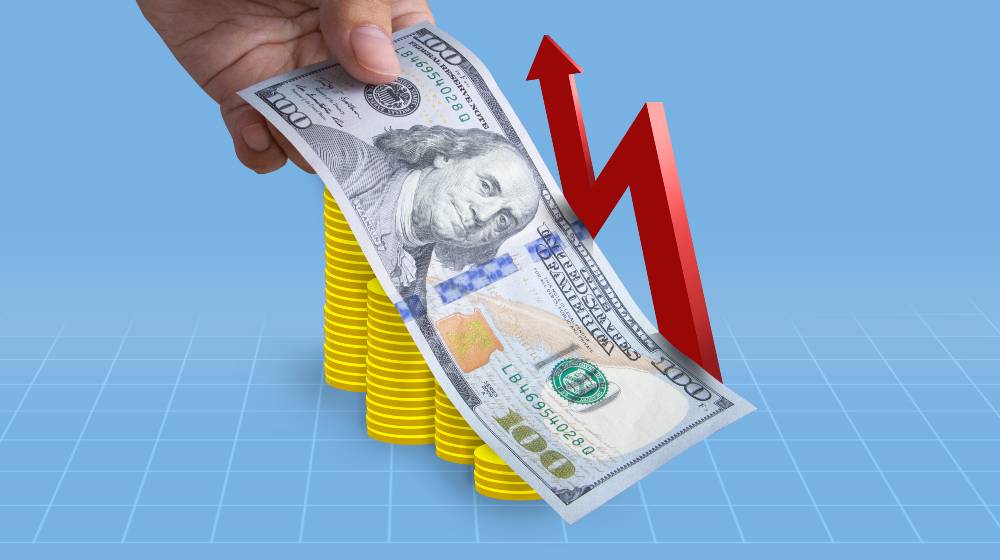inflation
Despite Pay Hikes, Americans Are Earning Less Due to Inflation

If you think workers are getting more money today due to last year’s series of pay hikes, think again. High inflation offset the jump in wages over the past year, as prices of goods kept rising.
In fact, paychecks are nearly 2% smaller for the average worker today compared to last year.
RELATED: Runaway Inflation Is Wiping Out Gains From Higher Wages
Inflation Offsets Gains From Pay Hikes

As prices of goods continue to climb, inflation is wiping away any gains made from pay hikes offered by many companies last year.
According to federal data published last Thursday, this effectively reduced the average American paycheck’s value by 2%.
With record resignation levels against increasing demand, employers offered pay hikes at the fastest rates in 15 years. Many companies tried to lure new workers or offer raises to retain existing employees.
However, the unprecedented rise in consumer prices for goods and services eroded any gains from their pay hikes.
Real Hourly Wages Fell By 1.7%
Instead of gaining purchasing power, the American paycheck actually lost value.
In fact, the US Department of Labor said that “real” hourly wages (earnings minus inflation) dropped to $11.22 between January 2021 and January 2022. This represents a 1.7% decrease in value.
In addition, net weekly earnings fell more over the same period by 3.1%. From $399.52, actual weekly wages now average $387.06.
This already accounts for a shorter workweek due to pandemic-related adjustments on work schedules. According to Greg McBride, chief financial analyst at Bankrate, “the price pressures on households just don’t end.”
Some Industries Made Even Bigger Pay Hikes, Workers Come Out Ahead
Now all workers suffered a net loss in their buying power. Some industries, like leisure and hospitality, gave enough pay hikes to outpace inflation. The trend is growing in all other industries right now, but only barely.
From December to January, the average American worker saw their pay outpace inflation by the barest margin: 0.1%. However, this is the second monthly improvement in terms of real hourly wages.
Elise Gould, the senior economist at the Economic Policy Institute, suggests this might start a trend. “You’re seeing it beat inflation, just barely,” she said.
Future Unclear on Inflation and Wages
For the next few months, it remains difficult to predict the direction in which inflation and wages will converge. Industry watchers are expecting the Federal Reserve to start raising interest rates beginning this March.
The agency hopes to tame inflation by tightening the money supply. However, inflation also remains hostage to supply chain issues and elevated consumer demand.
If the federal government manages to address all these issues, inflation can cool down.
Additionally, the rate of wage hikes might also prove unsustainable if the pandemic recedes. Right now, many are clamoring for a return to normal and accept COVID as endemic.
This means that workers will treat the virus as one of the many existing diseases they need to work around with.
If this happens, many reluctant workers will likely rejoin the labor pool. Consequently, if labor supply balances with demand, hiring would be less competitive.
Watch the ABC Action News video reporting that the US minimum wage not keeping up with inflation:
What do you think of today’s salary? Do you agree that inflation is outpacing the earnings of the American worker? How do you resolve this issue?
Let us know what you think. Share your comments below.















